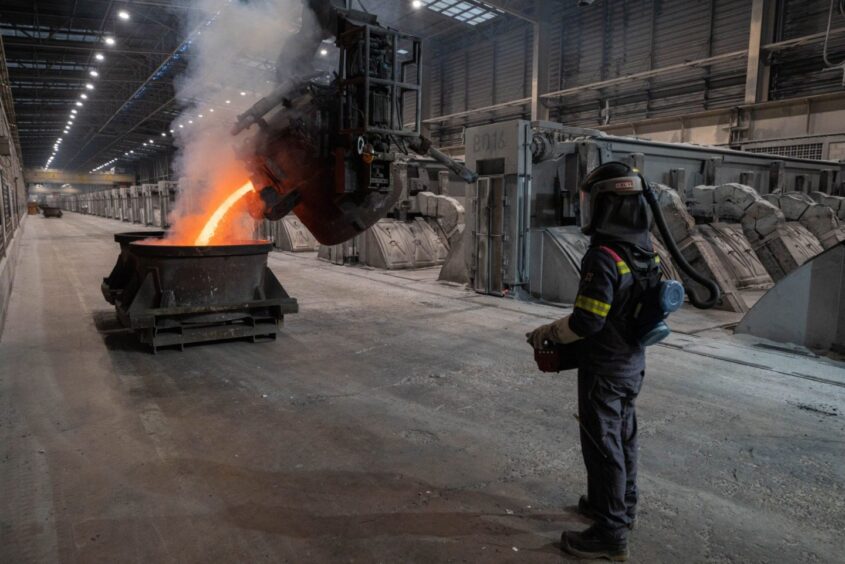
The UK will introduce a carbon border levy in 2027 for imports of emissions-intensive goods from countries deemed to have weaker climate rules, following a similar move by the European Union.
Imports of iron, steel, aluminum, ceramics and cement will be subject to the levy, the Treasury said in a statement on Monday. The tax applied will depend on the amount of carbon emitted in production and the gap between the carbon price in the UK and the country of origin.
“This levy will make sure carbon-intensive products from overseas — like steel and ceramics — face a comparable carbon price to those produced in the UK, so that our decarbonisation efforts translate into reductions in global emissions,” chancellor Jeremy Hunt said in the statement. “This should give UK industry the confidence to invest in decarbonisation.”
The policy is aimed at ensuring companies complying with strict climate laws in Britain don’t face unfair competition from producers in regions with lower costs. The government is confident the UK will have limited exposure to the EU’s carbon border tax when selling goods on the continent after prices in Britain dropped dramatically, Exchequer secretary to the Treasury Gareth Davies said.
UK carbon allowances have slumped 54% this year and are trading at £35.75 (€41.48) a ton, near a record low, while the European equivalent price is €68.17 a ton, data from ICE show.
The UK is consulting on a new Supply Adjustment Mechanism, which removes allowances from the market each year. The government is also seeking views on how to alter the number of free allowances handed out once the border levy kicks in, and expanding the emissions trading system to other sectors.
The consultation documents stop short of proposing a linkup of the UK’s system with the EU’s to try to bridge the price gap that’s emerged. Britain’s weak and volatile carbon price threatens to undermine investment in clean energy and cost the Treasury billions in lost revenue, according to lobby group EnergyUK.
Connecting the systems in future isn’t ruled out by the Brexit trade cooperation agreement, but it’s not on the table for now, Davies said in an interview.
The Treasury said the design of the carbon border tax would be subject to further consultation next year, including the list of products affected.
Recommended for you
